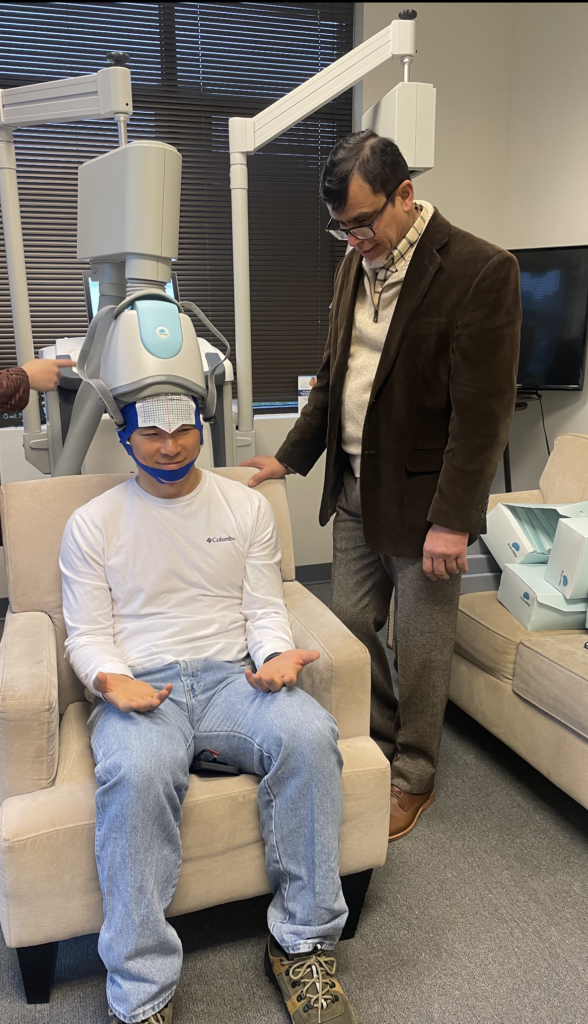In the realm of mental health treatment, advancements are continually being made to offer patients effective alternatives to traditional therapies. One such innovation is Transcranial Magnetic Stimulation (TMS), a non-invasive procedure that has garnered attention for its promising results in treating various mental health disorders, including depression. Among the leading providers of TMS technology is Brainsway, known for its cutting-edge approach to brain stimulation therapy.
Understanding Brainsway TMS
Brainsway TMS involves the use of electromagnetic coils placed near the patient’s scalp, specifically targeting areas of the brain associated with mood regulation. Unlike medications that can have systemic side effects or therapies that require extensive time commitments, TMS therapy offers a targeted, localized approach.
The procedure is straightforward: during a session, the patient sits comfortably while a technician positions the TMS coil over the pre-determined area of the brain. The device generates magnetic pulses, which stimulate nerve cells in the brain that are underactive in patients with depression or other disorders. These pulses are delivered in rapid sequences, typically lasting about 20 minutes per session.

The Treatment Process
Patients usually undergo Brainsway TMS sessions several times a week over a span of several weeks, depending on their individual treatment plan. The number of sessions can vary based on the severity of symptoms and how well the patient responds to the therapy. Unlike medications that can take weeks to produce noticeable effects, some patients report improvements in mood and overall well-being within a few weeks of starting TMS treatment.
How Patients Start Feeling Better
The mechanism behind why Brainsway TMS works lies in its ability to rebalance neural activity in the brain. For individuals struggling with depression, for instance, this therapy can help normalize the functioning of areas involved in mood regulation, leading to a reduction in symptoms such as persistent sadness, loss of interest in activities, and fatigue.
Patients often describe initial sensations during treatment as mild tapping or clicking sensations on the scalp. These sensations are usually well-tolerated, and the procedure itself is considered safe and non-painful. Many individuals find TMS to be a refreshing alternative to medications, particularly if they’ve experienced side effects or inadequate relief from antidepressants.

Real-World Impact
The impact of Brainsway TMS therapy extends beyond symptom reduction; it can significantly improve overall quality of life. By alleviating symptoms of depression or other mental health conditions, patients may find themselves more engaged in daily activities, enjoying improved relationships, and experiencing a renewed sense of hope and optimism.
Conclusion
As technology continues to evolve, so too does our approach to treating mental health conditions. Brainsway TMS represents a significant step forward in providing patients with a safe, effective, and non-invasive option for managing symptoms of depression and other disorders. For those considering alternatives to traditional therapies or struggling to find relief through medications alone, TMS offers a promising avenue worth exploring.
If you or someone you know is battling with depression or similar conditions, discussing Brainsway TMS with a healthcare provider could be the first step towards a brighter, healthier future. Embrace the possibilities that modern mental health treatments like TMS offer, and discover the potential to reclaim a fulfilling life. Contact Salveo Integrative Health to schedule a consultation with our Psychiatrist to find out more and if TMS is right for you. Email us at info@salveohealth.org for more information or call 770-910-9196 ext 222 to reach our TMS Coordinator.
+ view comments . . .